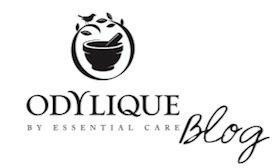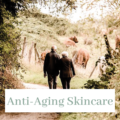Endocrine Disruptor Chemical Free Cosmetics
If you’re reading this page it’s likely that you are already keen on using organic, healthy skin care and household products. But a study just published has highlighted a significant cash cost of endocrine (hormone) disrupting chemicals to the taxpayer which might make everyone sit up and take notice.
The chemicals which disrupt hormones include phthalates, pesticides, dioxins and can be found in cosmetics, skin care, plastics, pesticides and medicines. – Rest assured that they are not allowed in organic skin care or cosmetics. – The human damage aside, the cost to health provision of diseases related to these chemicals has been estimated at around £1 billion per year across the EU.
The report published by the Nordic Council (which represents Scandinavian governments) focused only on the impact of hormone disruptors on male reproductive health (e.g. testicular cancer and infertility). But the report also warns that these problems “only represent a fraction of the endocrine-related diseases” and the report also does not consider damage to wildlife.
The even more sobering news is that the EU Commission is not in a rush to take action. Back in May 2013 leading public health scientists from around the world presented a declaration to the Commission, demanding strict testing of the chemicals and rejecting the EU policy that low level exposure to the chemicals is safe.
In May this year, the Swedish government decided to sue the EU Commission over the delay in identifying harmful chemicals in cosmetics, medicines and other every day products. The Swedish Environment minister, Lena Ek, told a French Press Agency that hormone disruptors are a “huge problem”, are affecting children as well as adults and that chemical industry lobbying is responsible for the EU’s lack of action.
The World Health Organisation (WHO) has also now called endocrine disrupting chemicals a “global threat”.
A spokesman for EU Environment Commissioner Janez Potocnik, said the delay was because the issue is complex and that there are indeed diverging views among scientists and ‘stakeholders’.
We believe that the EU Commission’s approach is unfortunate – the public is essentially a guinea pig until it can be proven that certain chemicals are dangerous. It should be the other way round, i.e. that substances put in products for human consumption should be proven safe first before being released to the public. The precautionary principle – upon which, for example, organic skin care formulation is based – is far preferable in our opinion.
If you want to take action, the EDC-Free Europe coalition, which includes Breast Cancer UK, has launched an easy to use online platform for the public to ‘Say ‘NO’ to hormone disrupting chemicals‘.
What is Dandruff? How To Beat A Flaky Scalp Naturally.

You take care of your hair; you wash it regularly,…



